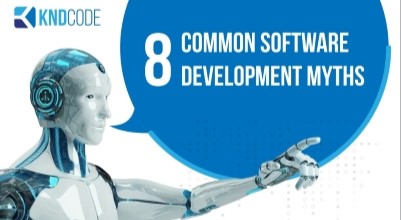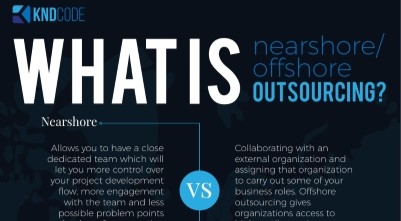When you think about healthcare technology, images of MRIs, X-rays, and hospital beds come to mind. But what about software? The technology developed since the turn of the century has affected almost every aspect of the healthcare industry in some way.
Over the last half-century, the healthcare industry has transitioned from paper-based filing to complex digital information tracking systems. Digitizing medical information alone has been a challenge. Now healthcare faces the challenge of effectively managing this data and keep consistency between platforms.
That’s why today we’re going to continue on our journey to explore and discuss the unique technology challenges for the healthcare industry.
Regulations, Compliance and Data Integrity
It’s no secret that medical data is sensitive. It contains private information that many patients prefer to keep secret. That’s why this data must adhere to stringent government regulations and compliance policies such as HIPAA. However, data discovery and poor data quality make it difficult.
As we discussed before, healthcare providers must follow strict compliance rules and regulations. In addition to the concern this brings to data security, it also hinders the speed at which healthcare adopts new technology. As a result, hospitals and independent providers are consistently avoiding the use of new advanced technology. This is because data integrity is essential to the healthcare industry, even more so than the technology it adopts. Inaccurate data could have fatal consequences. Let’s start with the challenges to healthcare data management.
Fragmented Data
Data for healthcare comes in a vast variety. This includes databases, images, video files, and even specialized formats. As a result, it is often duplicated and collected multiple times as its spreads among the different parts of the healthcare industry. The data is effectively so fragmented that there is no centralized source for it.
Data Changes
Medical data is constantly changing. Patients undergo tests, their conditions evolve, and new medical treatments produce new types of data year after year. Not to mention the continuous flow in and out of different providers involved in the process, each of them using different platforms. This is the nature of medical care. However, this fast-paced and ever-changing dynamic makes data management difficult, as data must be categorized, stored, and shared across providers. Fortunately, healthcare providers can work with end-to-end development companies to provide the best and most secure healthcare software to use on their systems.
Interoperability Between Platforms
What makes interoperability a major concern in healthcare software. It’s what allows providers to use various record systems to share patient information. This requires the data to be able to flow seamlessly from one system to the next despite the destination. Here are some of the challenges to interoperability in healthcare.
Inconsistent Information Across Sources
Again, fragmented data becomes a problem for healthcare software. In this case, it prevents easy access across systems. The inconsistency of data across a wide range of sources makes it difficult to bridge the gap between systems. As a result, users are forced to search across systems which creates a time sink that slows everything down.
Validating Patient Information Requests
The regulations surrounding the sharing of patient records often confuse providers. As a result, sharing information across certain systems isn’t a problem of how, but whether it should be. Which leaves providers waiting for approval to process electronic requests.
Costs of Interoperability Specialists
Ensuring interoperability is a costly and time-consuming task. As such, many organizations turn to specialists to maintain interoperability across their systems. However, qualified EHR interoperability specialists are expensive, and often outside the reach of smaller providers. Fortunately, for this challenge, and all the other hindrances to interoperability, there are cost-effective solutions available.
Resistance to Data Sharing
Healthcare providers have competitors just like any other industry. For example, urgent care clinics often compete with each other for patients. That’s why many organizations in the healthcare industry resist sharing information with other providers. Although the law demands this health data be accessible between organizations, the motivation to do so can be low.
Digital Security Risks
The healthcare industry is particularly vulnerable in the digital space. Although data and patient records were safe on-premise in the past, technology has added several layers of complexity. Hospitals now rely on many digital processes and networks to run their day-to-day operations.
As technology advances, so will healthcare’s digital vulnerability. Here are the risks that face the modern healthcare industry’s tech stack.
Cyberattacks
Healthcare data, as it grows in quantity and availability, has seen an increase in cyberattacks in recent years. The Internet of Things (IoT) led to many developments in the world, and the healthcare industry is no different. Today’s Internet of Medical Things (IoMT) devices, though useful, lack standard security, making them particularly vulnerable. As such, cybersecurity has become a serious concern for healthcare providers.
Data Privacy Breaches
The healthcare industry held to remarkably stringent compliance regulations. As such, any data collected and stored by healthcare organizations must be tightly secured. Otherwise, these organizations risk data breaches of private customer data and the likelihood of serious legal penalties.
However, the industry is still very much reliant on interoperability and the storage of patient data. That’s why it’s essential to strike a balance between security and the flow of data.
Remote Tool Vulnerability
SaaS applications are another great tool that has come in the most recent wave of technological advancements and risen in popularity due to the Covid-19 pandemic. This form of subscription software is now being used across industries including healthcare. Specifically, it is being utilized to supplement existing healthcare software. However, these solutions come with a higher risk of data breaches. Worse yet, the employees that use these applications are difficult to track. Consequently, it is unclear who is responsible for the data that passes through these remote applications. For all three of these digital risks, providers seeking to mitigate the chances of digital disaster must partner with software development companies to make their security measures up to date.
Software Training and Onboarding
A hospital is a complex ecosystem. There are a lot applications that serve a myriad of purposes. However, healthcare providers cannot have their employees spend most of their time learning these applications and their regulations when there are patients to attend. And these software regulations are often enough that by the time employees are trained for the old ones, new regulations appear. Thus, the healthcare industry sees a vicious cycle of employee training for software.
This is another problem that can be solved by employing comprehensive software development companies. Software development offers options to use creative software to assist in employee training on new technologies and the regulations that come with them.

How KNDCODE Can Help
The best option for healthcare providers to solve their interoperability and data management problems is to employ comprehensive software development companies. Software experts like the teams at KNDCODE are familiar with the delicate needs of the healthcare industry. With an expert in every language and software discipline, they’re able to tackle disparate data sources in healthcare.
Let them assist you in creating a private data management system for your health data needs. Whether you need help managing data or creating semantically interoperable systems, KNDCODE can help.
KNDCODE, Always Ahead, Forward, Near.
Ebooks
KNDCODE'S eBooks your gateway to knowledge and expertise in software development. Our curated collection of insightful and practical eBooks covers a wide range of topics, helping you enhance your skills and unlock your full potential. Our free eBooks provide valuable insights, best practices, and real-world solutions to empower your career in the ever-changing world of software development.

KNDCODE Credentials
Solutions to the most complex operational challenges.Learn more about our capabilities.
Read more
Hiring Guide (Dev)
Have access to the complete guide to effective Software Development hiring
Read more
Software Development Myths
Here are 8 common software myths and the truth behind each of them.
Read more
Nearshore vs Offshore SD
Nearshore vs Offshore Software Development. What's the difference?
Read more





